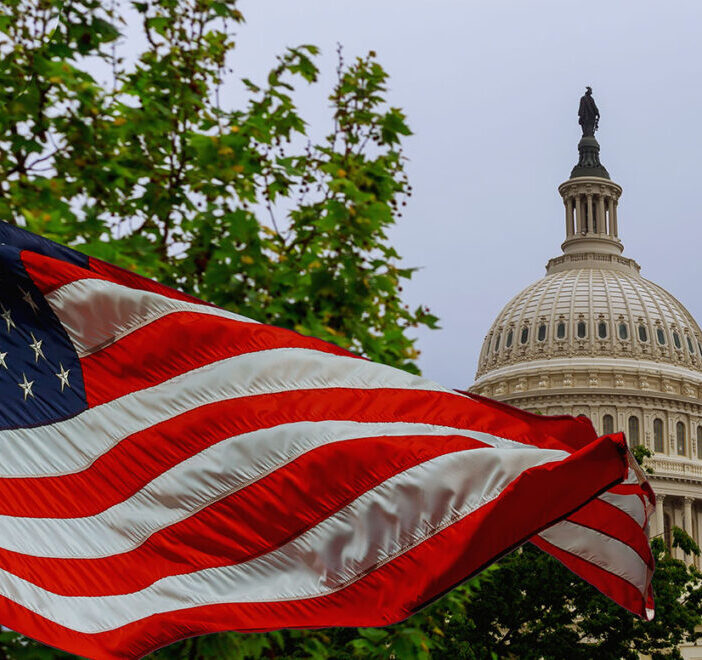March 09, 2022
Hospice and the Omnibus Appropriations Bill
The FY2022 Omnibus Appropriations bill was released early Wednesday morning March 9th, 2022. The bill funds the government through September 30, 2022. The bill is expected to be passed quickly by the House and Senate and signed into law by President Biden before the March 11 end of the current Continuing Resolution, although the House drafted a 4-day continuing resolution through March 15th that can be passed if more time is needed to finish votes over the weekend.
Here is what hospice providers need to know about the bill:
- The authority for hospices to conduct the face to face recertification via telehealth is extended. The CARES Act enabled hospices to do the required face to face recertification at 180 days (and every subsequent recertification) via telehealth. This recertification must be done via video-audio technology; it cannot be done using audio-only technology. The FY2022 omnibus spending package extended this flexibility along with a number of other telehealth flexibilities for 151 days starting the first day after the end of the public health emergency (PHE). If the PHE were to end in July, this would extend the face to face flexibility until mid December when we expect there will be a year end package under negotiation.
- Telehealth extenders paid for by extending the new cap calculation: the 5 month extension to the telehealth authorities included in the bill is partially paid for by extending the IMPACT Act change to how the hospice cap is calculated by one year. The cap calculation change will be through 2031 instead of 2030. As a reminder, this change updates the cap using the hospice payment update percentage instead of the Consumer Price Index for Urban Consumers (the CPI-U). The cap has been funded with this newer formula since 2016.
- The bill does not impact the routine home care flexibility. CMS allowed hospices to utilize telehealth for routine home care visits during the PHE. CMS will need to establish a policy on the utilization of telecommunications, both video and audio only, post PHE with regards to routine home care.
- The bill does not extend all Part B codes. The bill extends a number of authorities that are critical to be able to provide telehealth, such as allowing beneficiaries to access telehealth services from wherever they call home. CMS has a list of services that are eligible for billing when done via telehealth – some of them have been extended through 2023, some are permanently eligible for telehealth coverage, and some are only extended through the public health emergency. CMS has the authority to make changes to the codes that are eligible to be billed when the service is provided via telehealth. We will advocate to them to continue allowing codes used for Part B palliative care to be billable when done via telehealth after the PHE.
- Report on respite care: following our work on the COVID-19 Hospice Respite Care Relief Act of 2020, we continue to look for ways to expand respite care in hospice. The omnibus contains report text that instructs CMS in partnership with the Assistant Secretary of Planning and Evaluation (ASPE) to write a report on on the current best practices in hospice respite care and the potential for expansion of respite into the home. We worked on this text and are excited to see the report.
- Bereavement: The bill requests CDC include a new module in the Behavioral Risk Factor Surveillance Survey focused on bereavement to better understand the scope of bereavement exposure in the U.S. This annual telephone survey collects state data about U.S. residents on health-related risk behaviors, chronic health conditions, and use of preventive services. CDC is also encouraged to include a special highlight in its publication “Health, United States” State of Bereavement Care. The agreement also acknowledges research indicating that individuals and families suffer severe health, social, and economic declines following the death of a loved one-be it a child, sibling, spouse, or parent. The agreement encourages HHS (specifically OMH, ACF, CDC, CMS, HRSA, IHS, NIH, and SAMHSA) to examine their activities to advance bereavement care for families, including prevalence of bereavement events and the details of those events (what relationships are impacted, how the loved one died and at what age), risk factors and associated health events or outcomes, biological or physiological changes in wellbeing, and what interventions, or programs could help functional coping or adaptive processing.
The Labor-HHS report language can be found here. The bill text can be found here.

Most Recommended
October 15, 2025
 Shutdown Week Three: Impact of Ongoing Closure on Affordable Housing
Shutdown Week Three: Impact of Ongoing Closure on Affordable Housing
February 03, 2026
Fiscal Year (FY) Funding 2026
October 07, 2025
Immigrant Workforce Matching Program Brings Workforce Relief
Recently Added
February 13, 2026
Redefining Memory Care Engagement: New CAST Case Study
February 13, 2026
Prioritizing User-Informed App Design
February 13, 2026
CAST Members in the News
February 13, 2026



